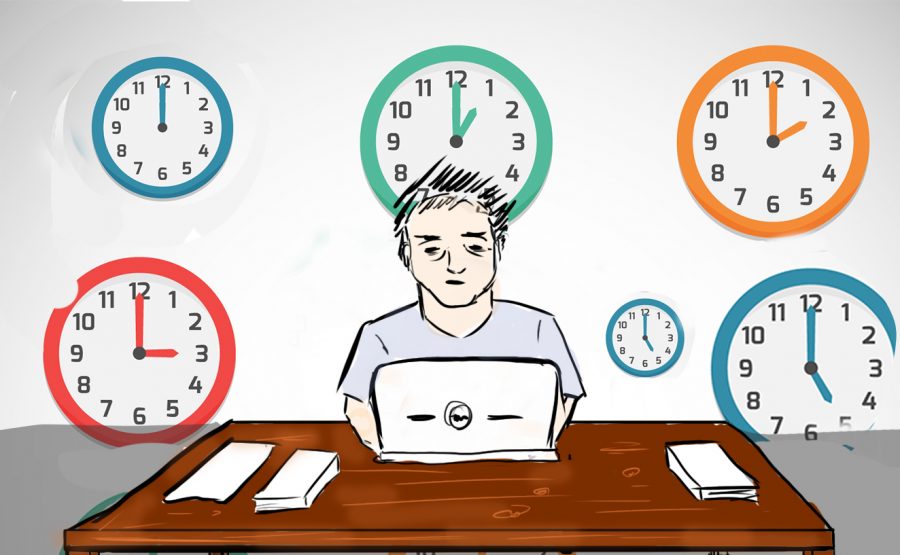The weeks that fall between Thanksgiving and Winter Break are probably the most hectic for students.
Knowing how to get through finals week varies for most people, but there are very common preparations that many students do that can actually help increase final scores.
No one should cram for finals week. Yes, I’m sure many of you are thinking “yeah we can, I’ve been doing it for semesters now.”
Well, a report in The Guardian about Susan Redline, a professor of sleep medicine in Boston, found that there was a link between sleep deprivation and the onset of disorders such as anxiety and bipolar depression. Apparently, regularly forcing your body to stay awake can affect your blood pressure and inflammation levels which can then result in an increased risk of heart disease and cancer.
Yeah, that’s pretty heavy, but it’s what could happen to many students.
Honestly, just prioritize your time. If you use the next three weeks after Thanksgiving Break wisely, finals week won’t be crammed with back to back studying.
Print out your study guide once it’s posted on Blackboard and start marking it up. You can retain information better if you see the terms and its key phrases constantly.
For every class, divide the study guide into sections for each day and study that section one day and the next section the following day. That way, you can study for different finals every day.
Lastly, use flash cards. This technique is much more useful than you may think. Flashcards are much better for memorization than any other type of studying method.
If you’re the type of person who is not able to mix subjects and different topics together, then dividing the days by each class could be useful too.
Aside from studying for finals, there are other factors that can help final scores increase. As much as you’ve heard this while growing up, it’s true; eating and exercise are very beneficial while taking exams and even studying.
Sitting for hours while reading and writing can be straining enough. So, not having the right sustenances and feeling weak could make studying harder.
Oh, and those nights staying up past 4 A.M.? Avoid that. A 2008 study by Pamela Thacher, an Associate Professor of Psychology at St. Lawrence University, all-nighters impair reasoning and memory for as long as four days.
I noticed that when I would pull all-nighters, the studying felt harder than when I slept normal sleeping hours. Waking up early and studying is far more beneficial to your studying as opposed to pulling all-nighters.
This finals week, make it your goal to not study harder, but to study smarter. You don’t need to stay awake for 12 hours to get a good study session in.
Rachel Reyes can be reached at opinioneditor@theorion or @rachhreyes on Twitter.






